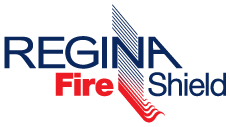Product
Specifications

CHEMICAL TYPES
Product Details
FireShield® W:
based on ammonium polyphosphate, but a non-hygroscopic form of the product, so it can also be used in exterior applications where weathering may be a concern.
FireShield® HT-W:
a form suitable for the higher temperature (HT) curing epoxy resins, common in aerospace, subject to weathering.
ATH
Aluminimum
TriHydrate
Product Details
FireShield® ATH:
when an ATH-filled composite is subjected to temperatures above 230°C/446°F, the ATH exfoliates 35 per- cent of its weight as water while the remainder becomes inert (noncom- bustible) aluminumm oxide (Al₂O₃). This reaction is endothermic, or heat absorbing; the water acts as a heat reducing agent to hinder fire spread.
MDH
Magnesium
Hydroxide
Product Details
FireShield® MDH:
MDH decomposes at a higher temperature than ATH, making it useful when working with engineering thermoplastic resins, such as polyamides and polypropylene.
Intumescents
Substrate Types
See pdf for carrier (substrate) properties to suit needs of laminate manufacture.
Chemical Shedding
Both satin and plain weave glass cloth substrates exhibit some degree of chemical shedding, as the glass area available for bonding is lower than is the case with tissue. The degree of shedding, at around 2% of gross weight, is not sufficient to impact on the fire protection, nor does it provide any health hazards, but it is unacceptable in clean-room situations. In such cases, the FireShield® can be converted into a Pre-Preg form.
Refer to Laminate Manufacture for process specific comments.
Refer to our Data Sheets page for technical and data sheets.
For Pricing of specific combinations,
A range of chemical types & substrates provides fire protection for most composite laminates, whilst allowing optimum laminate strength and stiffness - no filling required in the base resin.

